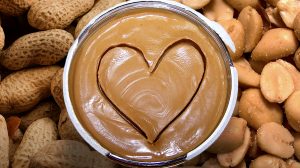
Please provide nutritional information of peanut butter and how its stats can help (and hinder) weight loss.
Serving- 2 tablespoons
Calories- 190
Fat- 16 grams
Saturated- 2 grams
Polyunsaturated- 5 grams
Monounsaturated- 8 grams
Trans fat- 0grams
Sodium-125 grams
Carbohydrate- 7 grams
Fiber- 3 grams
Sugars- 1 gram
Protein- 8 grams
The healthy fats from peanut butter and other nut butters like almond butter, cashew butter, etc., can help you feel more full and suppress appetite and cravings for carbohydrates and sugar.
Eating too much of any calorie dense foods like peanut butter can cause weight gain. It is also best to mix up the type of nut butters you eat because peanuts and peanut butter is a common food intolerance which can lead to a low grade inflammation causing digestive distress and weight gain.
How can someone keep portions in check? Your overall fat intake per day should be around 40-50% so if the amount of nut butter you consume fits into your food log recommended percentages along with your other foods then you are consuming the right amount.
Give examples of the best ways to fit peanut butter into a healthy (and weight-loss
friendly) diet – You can dip fresh chopped fruit and vegetables into nut butter, use it to make homemade energy or protein bars, or add it to your protein shakes for more flavor.
Give our readers advice on what qualities to look for when buying peanut
butter and best ways to avoid peanut butters with sugar and other additives.
Look for oil on the top of the jar, this is the most pure form of nut butter. Look at the ingredients and avoid any syrups, dyes, processed oils and sugar.

